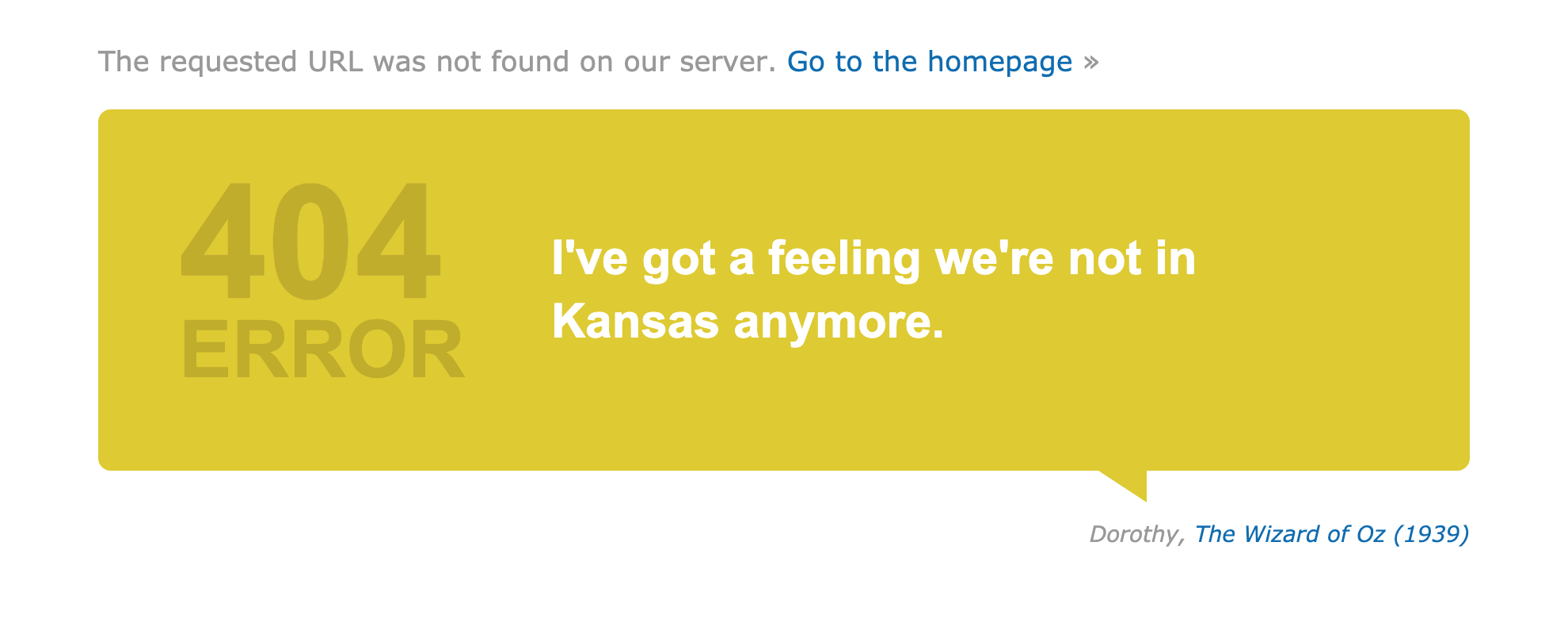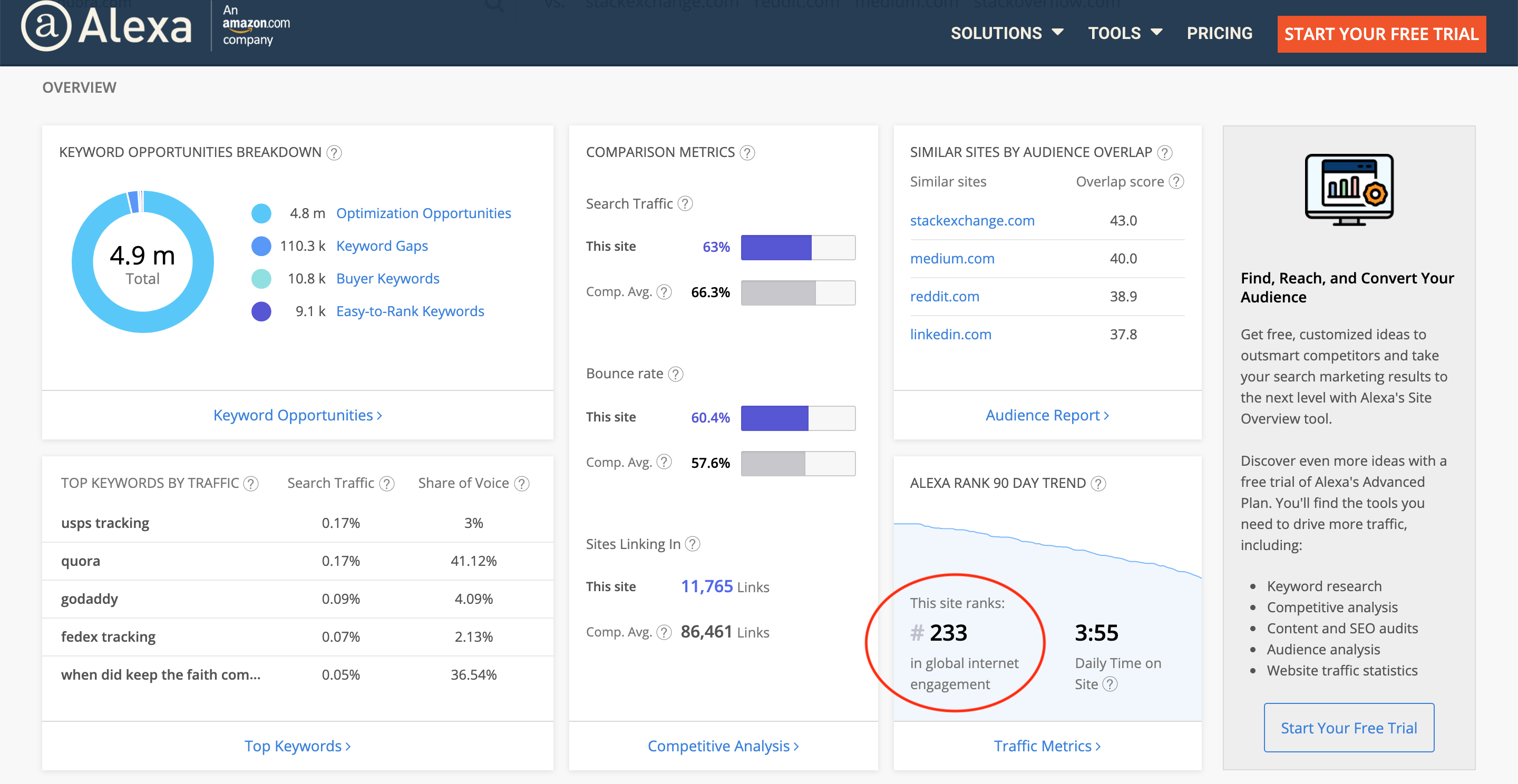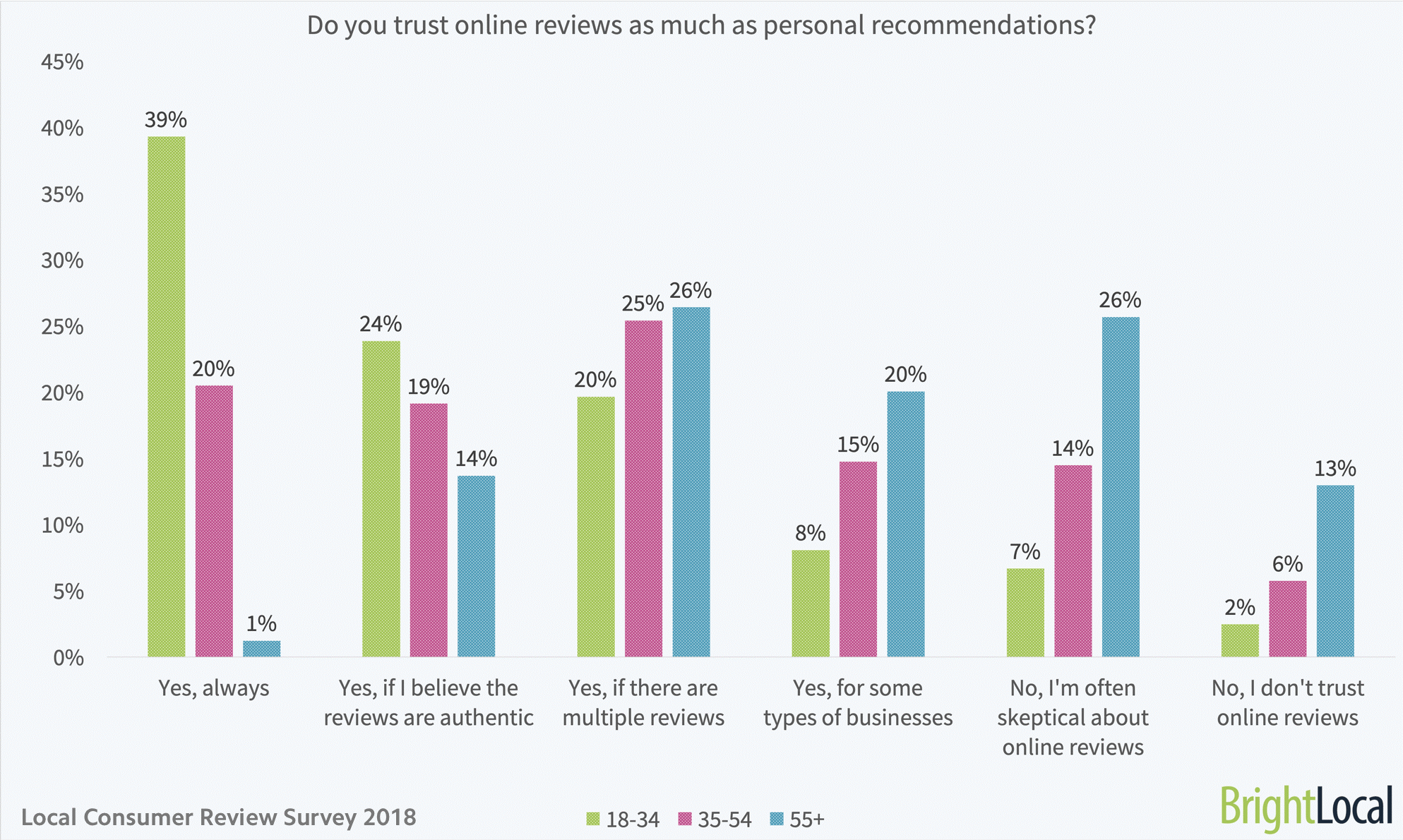MARKETING
A Guide to Local Citation Building
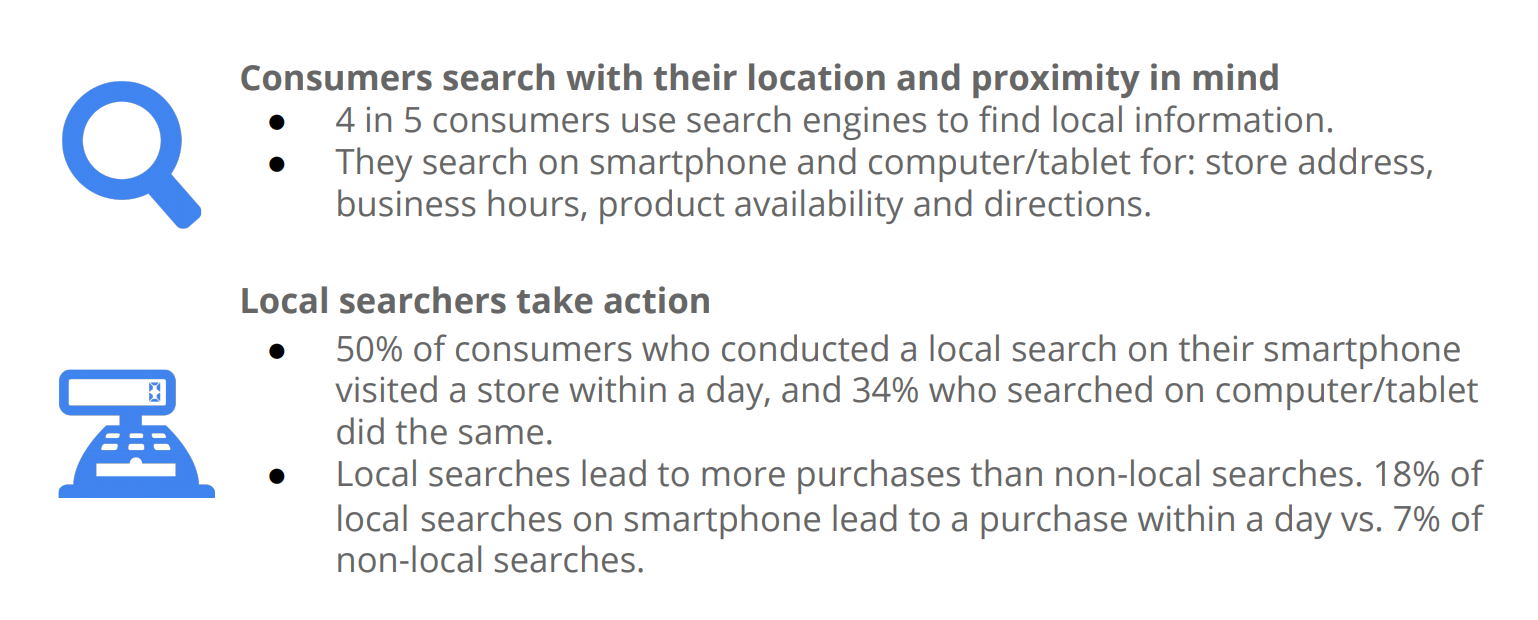
When was the last time you performed a local online search?
When you want to find a product or service in your area, do you dust off the ol’ phone book, or do you turn to your favorite search engine?
Think about it: Say you live in Seattle, and you need to take your dog to the groomer, make dinner plans with your friends, and check movie listings.
Oh, and you have got to take your coat to the dry cleaner.
Will you search for:
A) dog groomers
B) Mexican restaurants
C) movie listings
D) dry cleaners in Seattle Ballard
I hope you chose option D.
According to a Google consumer study, “4 in 5 consumers use search engines to find local information.”
If you’re like 80% of the rest of the world, you’re probably looking for local information online, too.
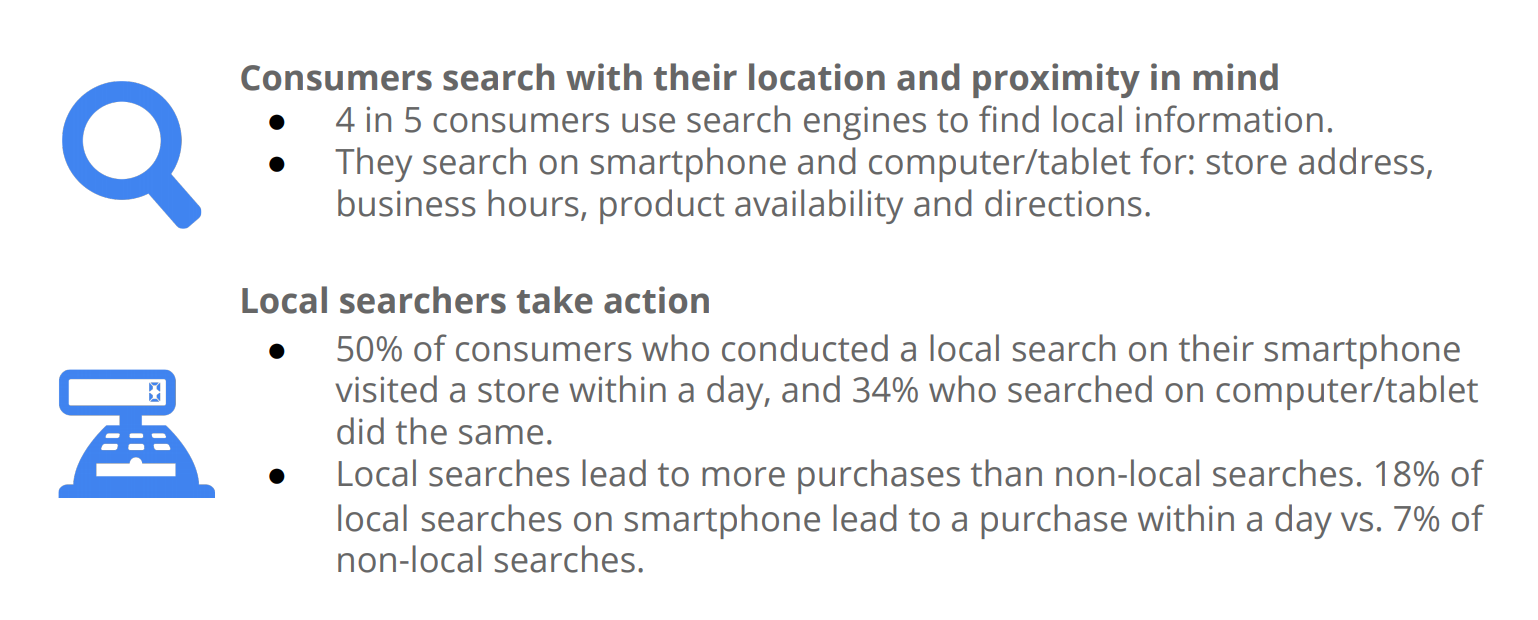
Turn the tables, now.
You’re a business owner – for this example, let’s say you own a dry cleaning business.
Your business has an address, a phone number, an email address, and even a blog where you share tips and tricks for taking better care of clothes. Go you!
You offer a valuable service that you know everyone needs. You’ve done some on-page optimization to help get your website discovered.
You’re doing everything right!
But for some reason, the customers are barely trickling in.
How can you fix that?
What are Local Citations?
Local citations are online mentions of your company – linked or unlinked – which include your business address, contact information, and in some cases, your website.
An example of this is a business listing on Yelp.
Take a moment to search “dry cleaners in Seattle Ballard,” and note the top organic result.
Spoiler: It’s probably Yelp.
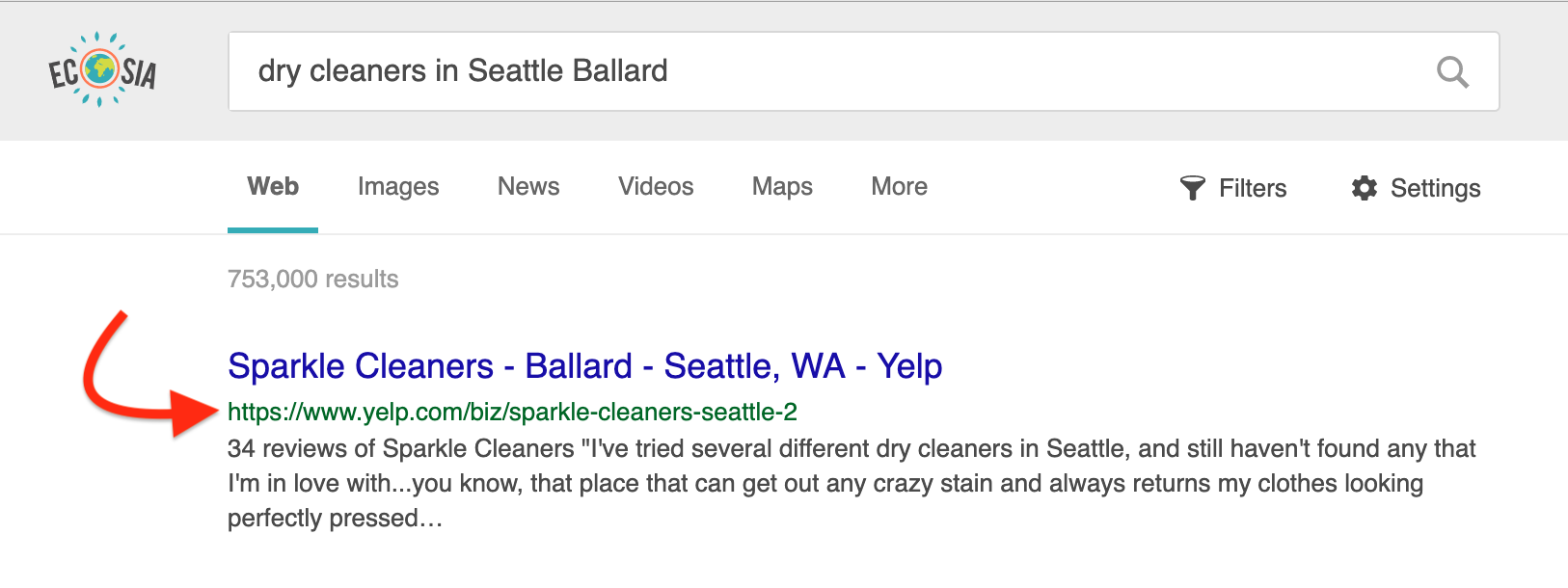
Citations can be incredibly beneficial to local businesses, particularly for local SEO.
Types of Citations
There are two types of citations: structured and unstructured.
Structured citations are like what you’d find in a local business directory. You have control over these citations. You can submit your business details, and update the information when necessary.
Some examples of structured citations can be found on:
- Yelp
- Yellowpages
- Maps (Google, Apple, MapQuest, etc.)
- Foursquare
Here’s an example of a structured citation on Yelp:
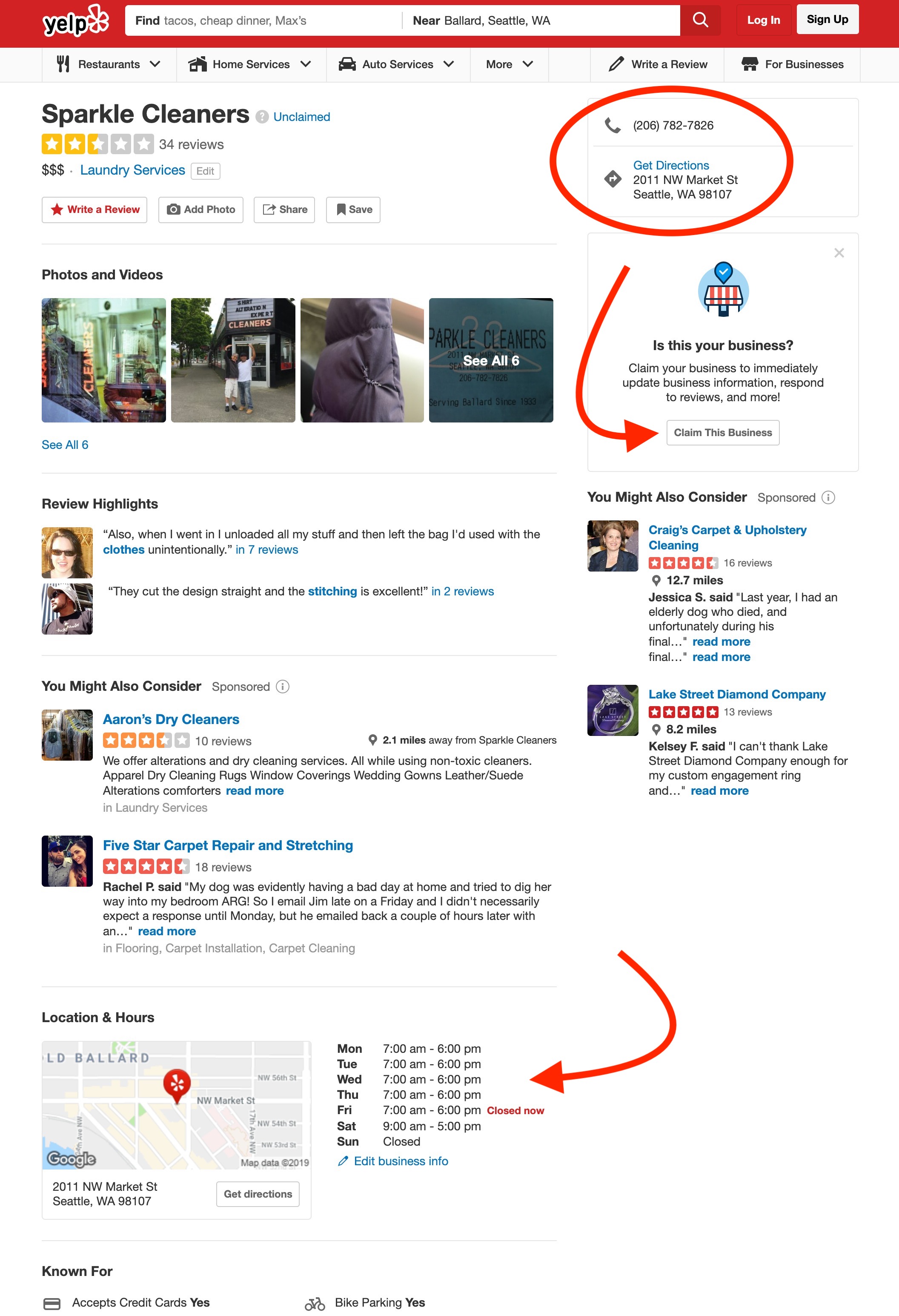
Unstructured citations are when your business information shows up on a site that’s not specifically a business directory. You can find unstructured citations on magazine or newspaper sites, blogs, social media, review sites, and the like.
Here’s an example of an unstructured citation on a local news site:
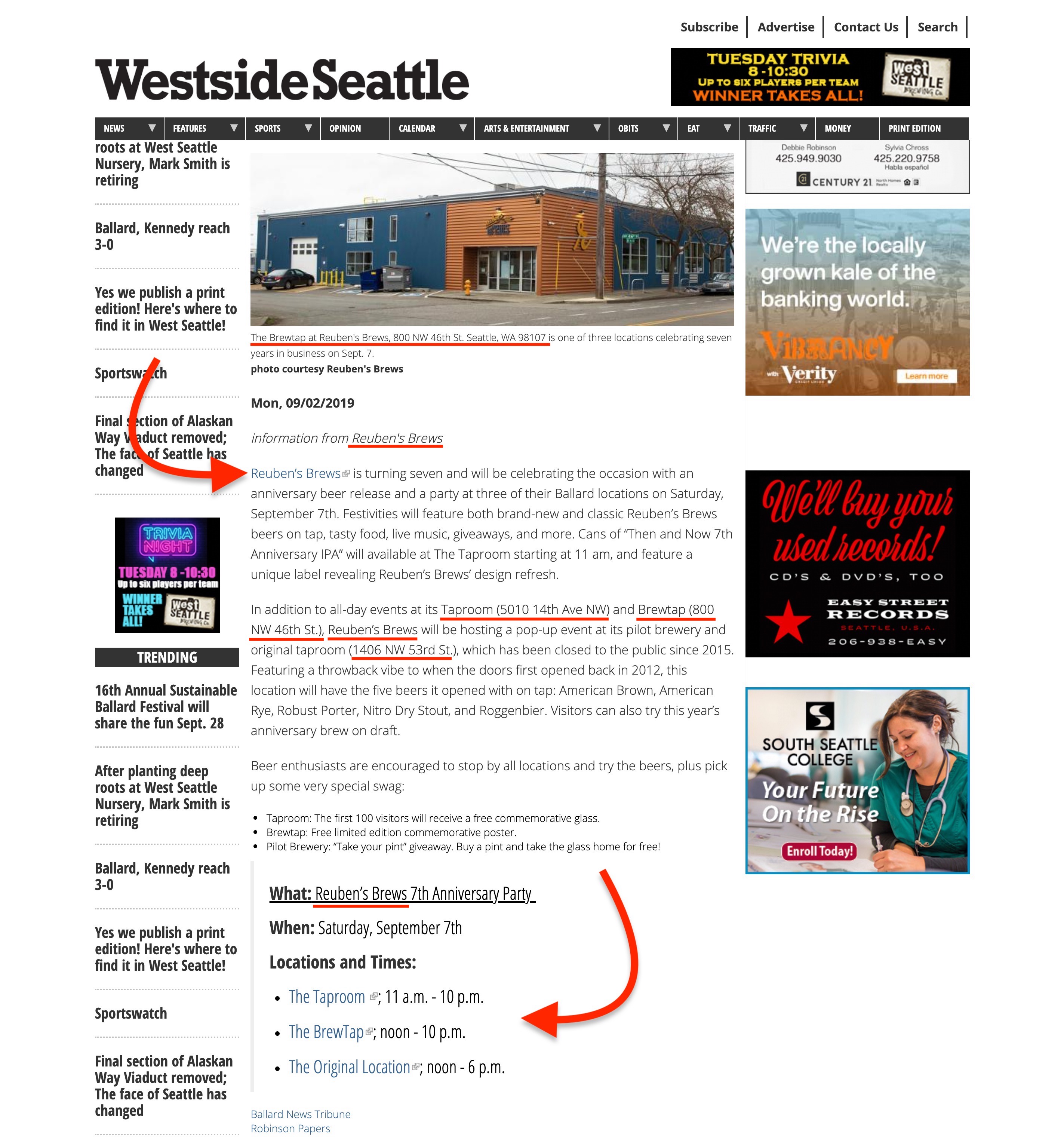
3 Ways Local Citations Can Help with Link Building and Site Visibility
1. Improve Local SEO Rankings
Local citations have a massive impact on your local SEO efforts and on whether your company will show up in the SERPs.
Local SEO and citations help search engines verify your business’s information.
They’re two of the ways search engines keep tabs on your site’s authority and prominence, so the more often your company’s info appears online, the more prominent your site appears to search engines.
2. Increase Site Traffic
An improved local SEO ranking means increased visibility in local search results, and more visibility in search results means increased site traffic.
Even unlinked citations can drive traffic and improve local presence, but they also provide an opportunity for claiming new links and building your link portfolio.
3. Impact Customers
Local citations help your company establish trust with search engines and with customers.
If you have multiple websites, especially high-authority, trusted websites that are citing the same information about your business, it tells search engines and your customers that your site and your business can be trusted.
How to Build Local Citations
Whitespark
Whitespark’s curated list of citation sources by country is a great starting point.
Just work your way through their list to manually build your citations.
Whitespark also offers a helpful Local Citation Finder tool, which offers plans for every business — from Starter (free) to Enterprise ($80/mo).
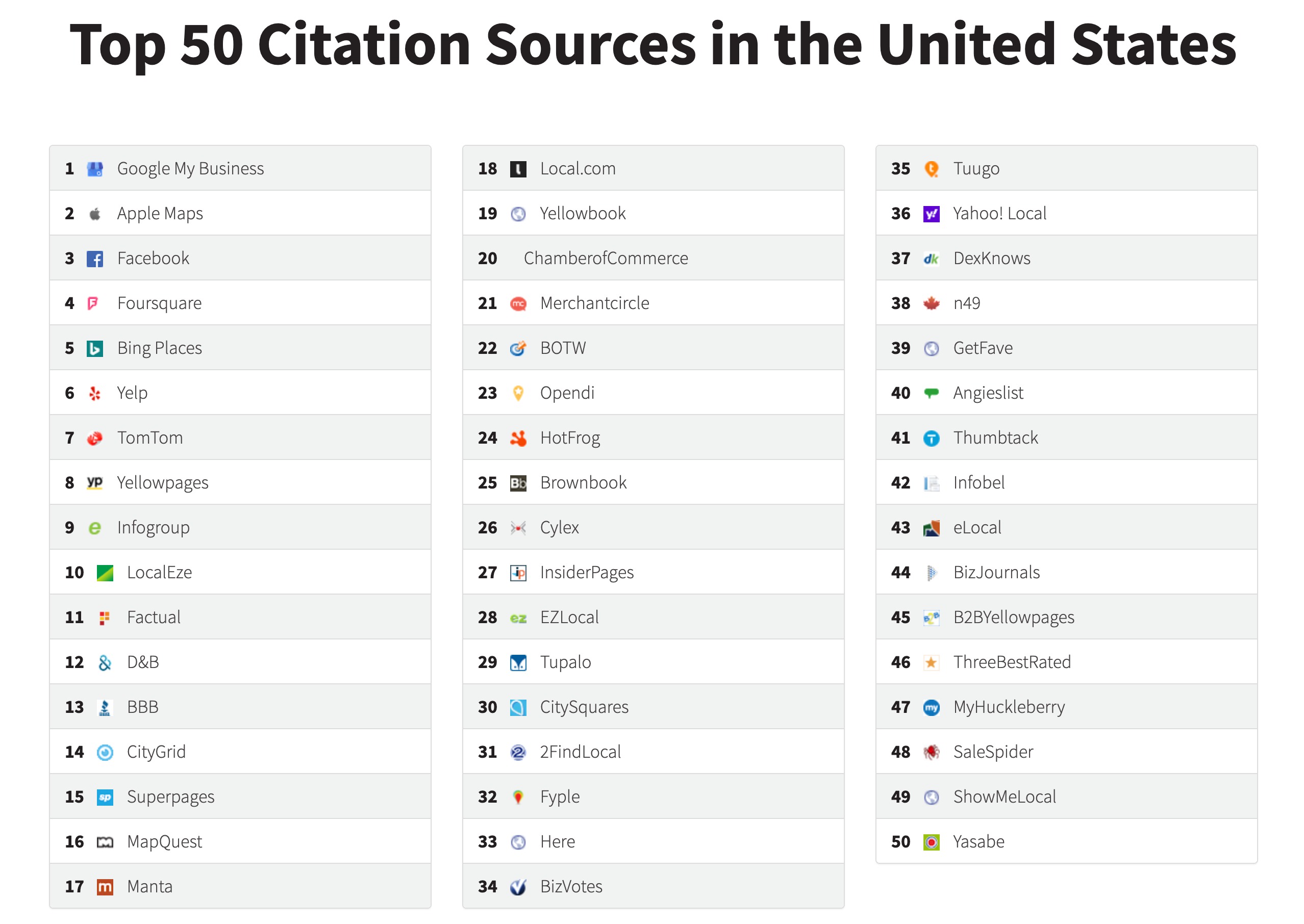
Data Aggregators
According to Advice Local, “data aggregators are data mining systems that spread business information online. They collect and share business data with a multitude of sources, including search engines like Google.”
In other words, data aggregators gather information on businesses and then feed that information to other sites.
Some popular data aggregators are:
- Infogroup
- Foursquare
- Factual
Local Directories
Google’s consumer study says that “local searchers are ready to act. Many visit a nearby location within a day and complete purchases at a higher rate than consumers who conduct non-local searches.”
This is why it’s so important for you to get your business listed in local online directories.
Some directories will generate their listings based on information received from data aggregators.
Check your local directories to see if a listing already exists for your company, and make sure the information is accurate.
You can also submit new listings if one doesn’t yet exist for your business.
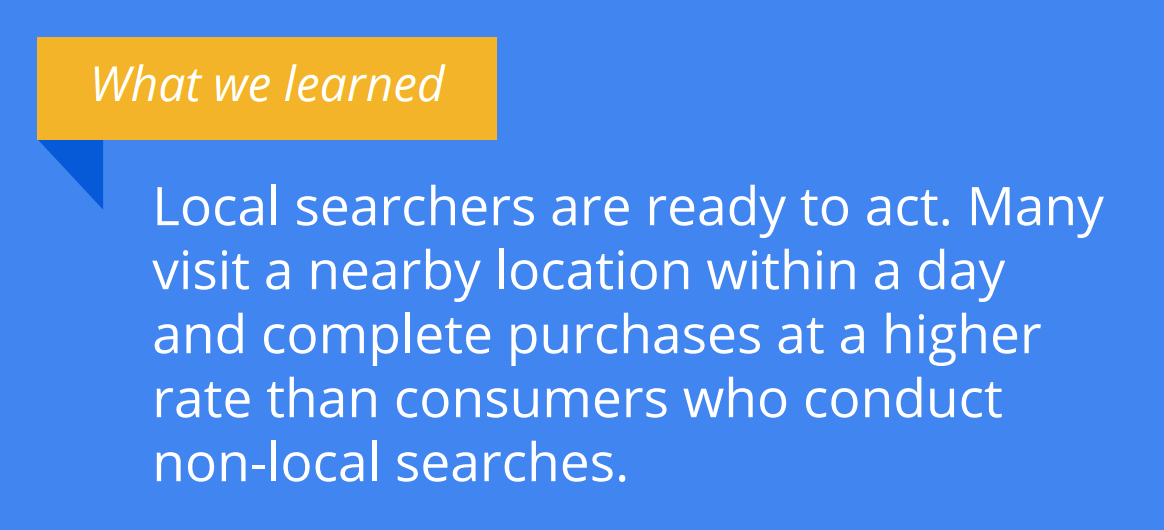
Review Sites
Review sites can be valuable sources for citations. Check review sites for existing information on your company, and ensure that your business information is accurate, including the address, contact information, and website.
Customer reviews are a ranking factor that search engines take into account when examining for site authority.
Some examples of customer review sites are:
- Influenster
- ConsumerReports
- Amazon
Social Media
Having a social media account for your business not only boosts customer engagement, but it also provides an opportunity for citations. Former Googler Matt Cutts said:
“Facebook and Twitter pages are treated like any other pages in our web index, and so if something occurs on Twitter or occurs on Facebook and we’re able to crawl it, then we can return that in our search results.”
So get a couple of social media accounts set up for your business, and make sure your address, phone number, email address, and website are correct.
Staying Consistent
Keep important information consistent across citations. Make sure your listings have the correct business name, contact information, and website.
However, keep in mind that small differences here and there are nothing to fuss over. For example, search engines will recognize “Search Engine Journal” and “search engine journal” as the same name.
As Whitespark states it, “put a little trust in the algorithm.”
Develop Your Local Citation Profile
Still not convinced?
Consider this: Google’s consumer study found that 18% of local smartphone searches led to a purchase within one day. One day!
Developing a strong citation profile for your business is one of the most practical and cost-effective ways to optimize your local SEO.
Implement citation building as a part of your digital marketing strategy.
Summary
Timeframe: Month 1-3
Results detected: 4-12 months
Avg citations per month: 6
Tools:
- Struction Citation Sources
- Unstructured Citation Sources
- Whitespark
- Data Aggregators
- Local Directories
- Review Sites
- Social Media Accounts
Benefits of local citations:
- Improve local SEO rankings.
- Increase site traffic.
- Impact customers and establish trust.
- Cost-effective.
Image Credits
Featured Image: Paulo Bobita
All screenshots taken by author









